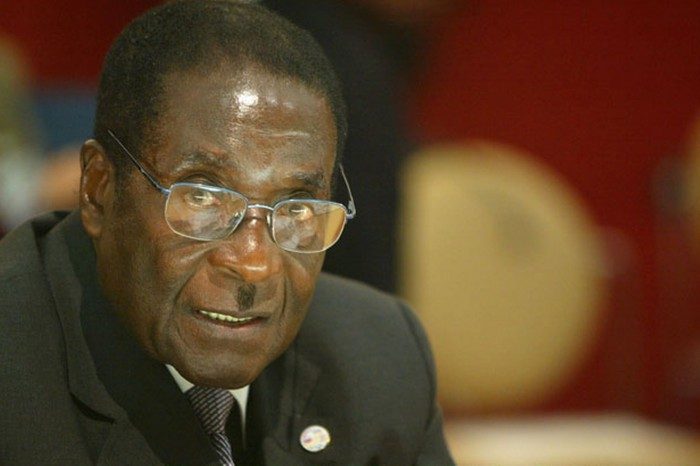


 PRESIDENT Robert Mugabe has ordered Cabinet to stop further dissolutions of boards of parastatals, in a move meant to protect the remaining directors of State enterprises from indiscriminate dismissals by their respective ministers whose underlying objective has been to replace them with boards that are acquiescent to their interests, the Financial Gazette can exclusively reveal.
PRESIDENT Robert Mugabe has ordered Cabinet to stop further dissolutions of boards of parastatals, in a move meant to protect the remaining directors of State enterprises from indiscriminate dismissals by their respective ministers whose underlying objective has been to replace them with boards that are acquiescent to their interests, the Financial Gazette can exclusively reveal.
The country operates nearly 70 parastatals, the bulk of them surviving on government subsidies due to severe undercapitalisation, State interference and mismanagement. Since the constitution of a new Cabinet last September, which replaced a hybrid coalition government established in 2009 to end the contestation for power between ZANU-PF and its rivals, about 20 parastatal boards have been shown the exits as the new ministers attempt to make their presence felt.
The wholesale dismissals of the boards in certain ministries has not gone down well with the powers-that-be, amid suspicions that they were meant to create space for golden boys and girls of some top bigwigs. A familiar trend had been observed whereby certain bureaucrats tended to appoint the same faces to various boards notwithstanding their lack of prior knowledge and skills in the respective fields.
While it has been difficult to nail these ministers to specific acts of corruption unravelling at parastatals under their control, it is not inconceivable, sources said, that some of the appointments could have been used as conduits to siphon public funds for self-enrichment.
Sources in Cabinet said the decision to freeze board dissolutions followed heavy lobbying by those who felt aggrieved by their axing from the various boards which have been dissolved so far. Alarmed by the development, President Mugabe is said to have directed Cabinet through Misheck Sibanda, the chief secretary to the President and Cabinet, to put all impending board dissolutions in abeyance.
The directive came as a relief to several other boards which were sitting on the edge in the wake of the salarygate explosion in which several parastatal heads and their top management have been exposed for earning mega salaries while their enterprises are tottering on the brink and unable to pay their general workers.
President Mugabe’s spokesperson, George Charamba, who is also the permanent secretary in the Ministry of Information, Media and Broadcasting Services, confirmed the development when contacted for comment by the Financial Gazette. Charamba said in some cases, the board dissolutions were done without stating grounds for their disbandment. He said after President Mugabe’s directive, Cabinet appointed Sibanda to lead an inquiry into the intended disbandment of boards of parastatals and come up with recommendations.
“If you may recall, we (Ministry of Information, Media and Broadcasting Services) were the first to dissolve boards and put management on suspensions after realising that there was generally lack of direction in the conduct of the parastatals and that these institutions were being mismanaged,” Charamba told the Financial Gazette in a telephone interview.
He added: “After the Zimbabwe Broadcasting Corporation (ZBC) and Premier Service Medical Aid Society saga, there was an attempt by every new minister to dissolve his or her respective boards of parastatals under their supervision.
“It was very clear that the ministers were attempting to change structures just for the sake of change without any good reasons for doing that at some instances. Cabinet therefore appointed the Chief Secretary to the President and Cabinet (Misheck Sibanda) to lead in an inquiry into disappointments and appointments of boards of parastatals and make recommendations.
“Therefore, Cabinet through the chief secretary to the President and Cabinet took a routine administrative measure meant to freeze appointments or disappointments ahead of the inquiry by the chief secretary,” he said.
Jonathan Moyo, the Minister of Information, Media and Broadcasting Services triggered the wave of parastatal boards dissolution when he dissolved the board of the loss-making ZBC. He also reconstituted the board of the Zimbabwe Newspapers (1980) Limited (Zimpapers), which owns several titles including the daily Herald. Both the new ZBC board and the reconstituted Zimpapers board have been stuffed with members believed to be Moyo’s side-kicks.
Another minister to wield the axe on parastatal boards is Energy Minister Dzikamai Mavhaire who dissolved eight boards falling under his ministry which had been appointed by a Movement for Democratic Change minister, Elton Mangoma during the Government of National Unity. Announcing the decision, Mavhaire said he was not pleased with the performance of the boards and felt they would not be able to implement the Zimbabwe Agenda for Sustainable and Socio-Economic Transformation (Zim-Asset) blueprint.
The dissolved boards were for the Zimbabwe Energy Regulatory Authority, the Rural Electrification Agency, Powertel, ZESA Enterprises, the National Oil Infrastructure Company, Petrotrade, Zimbabwe Power Company and Zimbabwe Electricity Transmission Distribution Company. Mavhaire said as a new minister he came with his own style in terms of operations.
While Mavhaire is still to replace the dissolved boards, chances are that they will be packed by his blue-eyed boys. Transport Minister Obert Mpofu did not hesitate either to show the boards of Air Zimbabwe (AirZim), the National Railways of Zimbabwe (NRZ), the Civil Aviation Authority of Zimbabwe (CAAZ), the Traffic Safety Council of Zimbabwe and the Zimbabwe National Roads Administration (ZINARA) the door.
In taking the action, he said this was in pursuant to the objectives and goals of Zim-Asset, whose implementation was underpinned and guided by a results-based management system. Abdullah Kassim chaired the ZINARA board, while Khotsho Dube chaired NRZ. AirZim was chaired by Ozias Bvute, while the CAAZ board chairperson post fell vacant following the election of Advocate Jacob Mudenda as Speaker of the National Assembly.
newsdesk@fingaz.co.zw